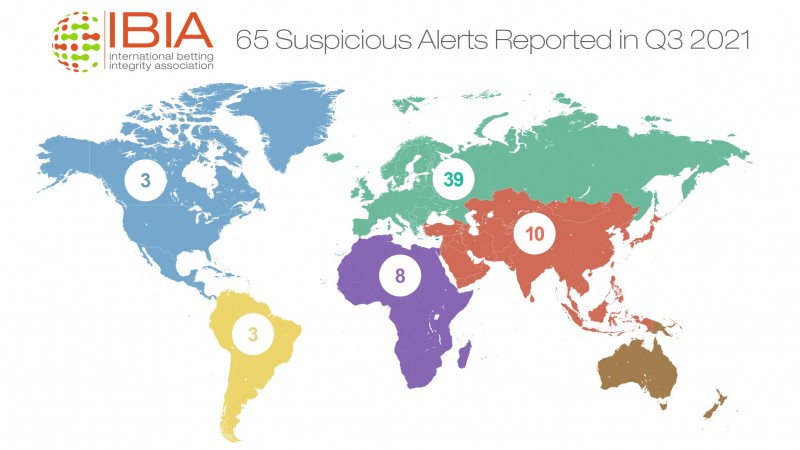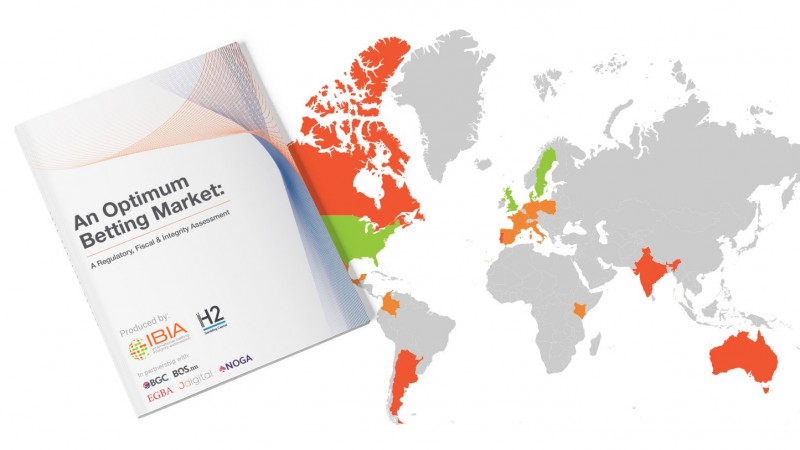The International Betting Integrity Association (IBIA) is a not-for-profit association whose members include many of the world’s largest regulated betting operators, active across six continents. It advocates for the integrity of the licensed betting industry, as its members share a common goal of combating betting corruption to protect the integrity of sport and of their businesses.
While 2021 was meant to be the year of recovery, as the year-end nears Covid-19 infections continue to rise again. IBIA’s Director of Public Affairs, Silvia Paleari, tells Yogonet that “it’s too soon to say what the economic impact will be, but what we have seen for the gambling sector is that 2021 has been the year when the industry started to come out of the crisis, however estimates show that the full recovery to pre-2020 levels has not happened yet.”
She cites the latest data from H2 Gambling to say that the total gambling gross win in 2021 is expected to reach around $408 million, which is close to the growth the industry knew before the pandemic, but still lower than 2019 levels. “However, 2022 is expected to be the turning point when full recovery will not only be achieved but estimated to reach higher growth compared to pre-Covid times: projections show that it might reach almost $500 million in global gross win, a 7% increase compared to 2019,” she points out.

However, when it specifically comes down to the betting sector, including sports and racing, data shows that it reacted better to the Covid crisis and already in 2021 it could attain an increased growth compared to 2019, of around 11% in global gross win, Paleari says, and cites estimates showing that it should reach around $98 million in 2022, 31% up compared to the 2019 global gross win level.
According to IBIA’s executive, this could be due to several factors, such as the opening of major jurisdictions around the world, including Canada and Brazil, as well as the consolidation of certain European markets which just recently became operational, like the Netherlands and Germany, and the ongoing legalization of betting in the US states. “This recent impulse to regulate betting in various countries around the world will also contribute to the continued growth of online betting, which is expected to be the dominant channel going forward.”
Furthermore, in 2022 the entire American continent will continue to be in the spotlight in terms of regulations, Paleari tells Yogonet. In Canada, after the federal law allowed provinces to regulate single-sport betting, Ontario is expected to open sometime in Q1 2022. “In the US there will be the consolidation of those markets which started to operate in 2021 and we will see more States become operational in the new year. In Latin America, there are also exciting opportunities, with Brazil finally unblocking the past months’ deadlock and with the province of Buenos Aires recently awarding licences to operators.”
“IBIA will be looking closely at these developments, and it is committed to continuing to raise awareness on the importance of sports betting integrity measures and to establish partnerships in those jurisdictions,” the Director of Public Affairs says.
From a product perspective, Paleari foresees that 2022 will be confronted with the challenge of the privately organized tournaments, as 2021 showed that these are here to stay: “Now the regulated betting industry needs to decide on how to deal with them, both from an offer and an integrity perspective.”
IBIA engaged with the Universal Tennis, a privately organised tennis tour, and signed an agreement to share data on suspicious betting alerts. The challenge with privately organized sporting events is that they fall outside the scope of the investigative powers of sports governing bodies, leaving these events without oversight, and potentially exposed to even more integrity issues. “To this end, regulated operators should carefully assess these events and should make sure that their offer on these markets meets quality standards,” Paleari remarks. “Quality standards in the offer will be a key theme for our association next year as this should be extended to the whole supply chain of the industry.”
In addition, IBIA has already started to look at the integrity side of data providers, launching in 2020 a set of data standards aimed at those companies involved in the collation of sporting events data, to make sure that the reliability and security of those data starts from the source. In 2021, Stats Perform and Sportradar underwent the audit with eCOGRA (eCommerce and Online Gambling Regulation and Assurance) to demonstrate that they meet those standards and were awarded the IBIA Data Standards Kitemark.
“The role and responsibility of data suppliers is fundamental if the whole betting sector wants to effectively fight against fraud. In 2021, IBIA welcomed IMG Arena as its latest associate member, and we hope to see more companies like this joining IBIA next year as well as complying with our data standards,” Paleari says.
“Looking back at 2021, it has been a challenging but exciting year for IBIA: working with H2 Gambling, we launched the Optimum Betting Market Study, which assesses and ranks the sports betting framework of 20 jurisdictions around the world. It also looked into the availability of betting, and quantified for the first time using detailed operator data the loss that regulated sports betting companies suffer because of match-fixing.”

IBIA also collaborated with a number of international bodies such as the United Nations Office on Drugs and Crime (UNODC) and Interpol, and it deepened its longstanding partnership with key sports governing bodies by monitoring closely high-level events such as the EURO 2020 and the Summer Olympics.
“With the pandemic entering its third year, it looks like 2022 will also be challenging, however, there is cause for optimism; some major sporting events will take place starting with the Winter Olympics and concluding with the soccer World Cup. IBIA will be involved monitoring both these events through our partnership agreements with IOC and FIFA,” Paleari continues.
“The recent UNODC Global report on corruption in sport showed that Governments around the world should have sport integrity policies high on their agenda, and IBIA and its members are ready to play their part in continuing supporting the fight against match-fixing and fraud in sports and sports betting,” she concludes.
